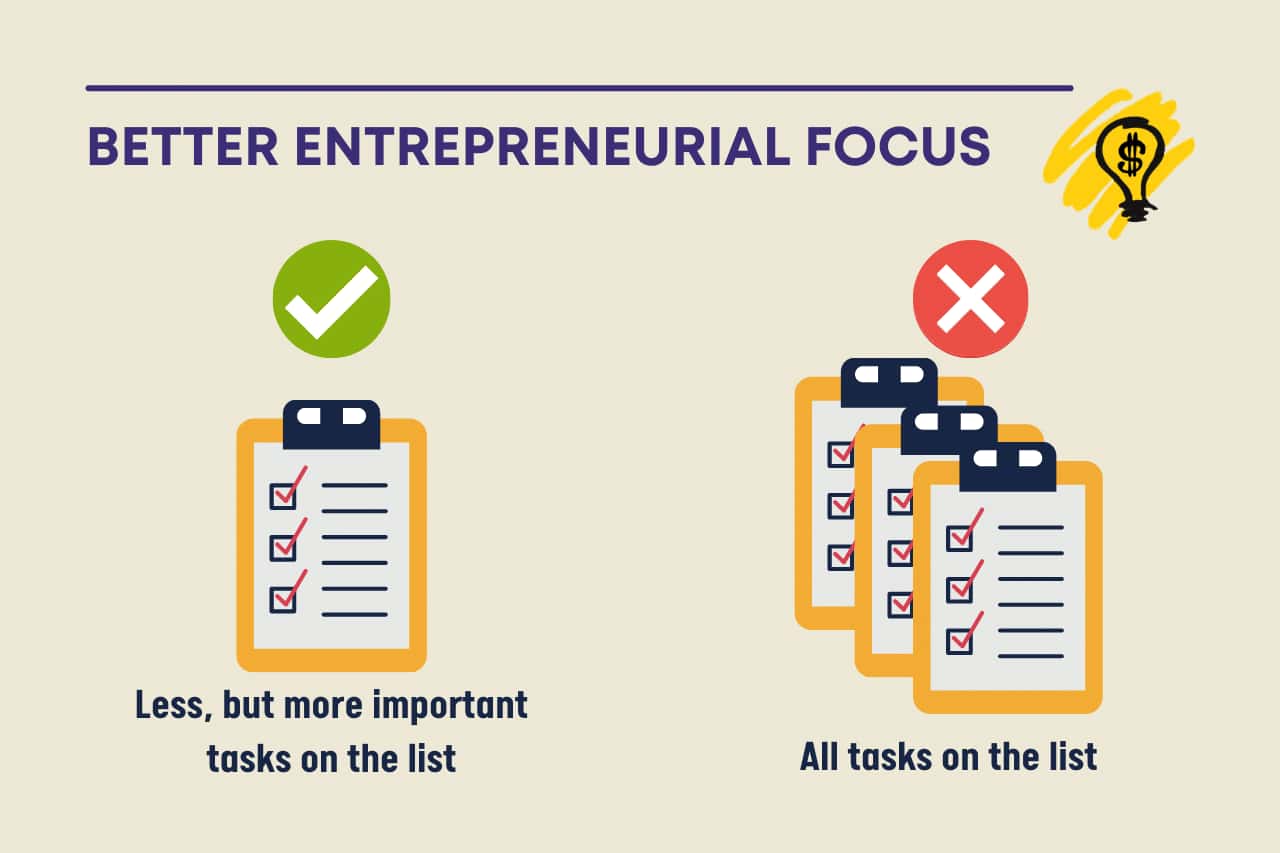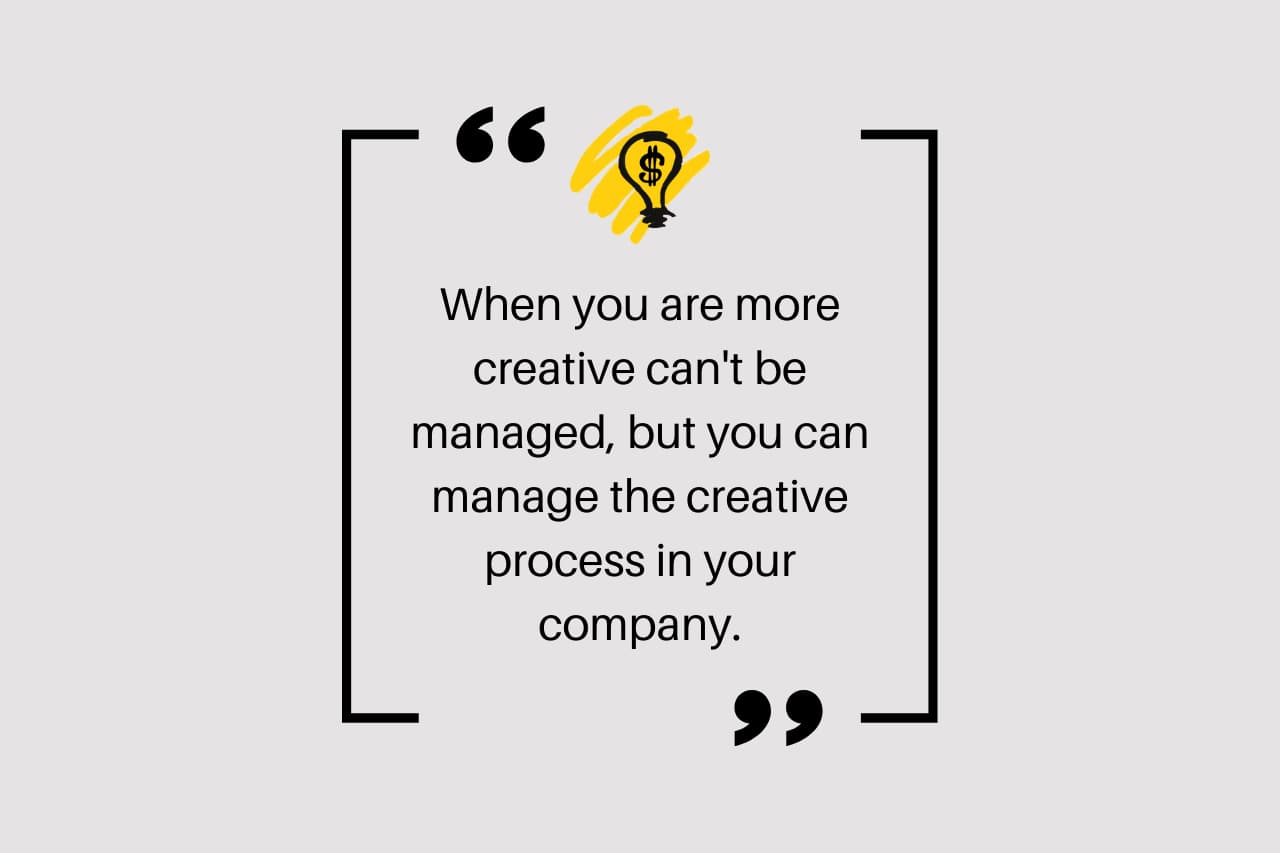There are many different categories of tasks involved in being an entrepreneur. To ensure you aren’t missing out on important, here we will talk about five of the most important tasks you should focus on.
What do I have to do to ensure that my company will move in the right direction?
Entrepreneurship is a lot like running a marathon. There’s no doubt about it. But you can’t focus on every detail at once. If you do, you’ll fall behind the pack. So, choose the major tasks you want to tackle and stick to those.
Because of that, I am using categorization to achieve some order in the chaos of all possible entrepreneurial tasks.
Many people new to entrepreneurship have no idea what they should do and where they should focus. When it comes to your entrepreneurial tasks, generally, they can be classified into different groups.
Introduction to Entrepreneurial Tasks
When running a company, having an effective checklist of tasks you must complete every day is absolutely necessary. This checklist of tasks will keep you focused and give you an idea of what to expect from your entrepreneurial journey.
But, each task has a different level of importance. You can easily come up with a list of hundreds of tasks and lose your focus. Simply, you can easily get overwhelmed and frustrated when you have a lot of different tasks to accomplish. In fact, sometimes you feel like you don’t even know where to begin.
Related: 10 Smart Skills You Will Need Now as an Entrepreneur
On the other side, you don’t have to be a rocket scientist to realize that entrepreneurship is tough. Not only are there no clear, step-by-step instructions for becoming a successful entrepreneur, but the rewards are also so much more different than they are in a 9 to 5 job. Because of this, many entrepreneurs struggle with the question, “How do I know when I’m doing the right things to help my business grow?”
For example, some entrepreneurs spend hours every week just figuring out how to keep their businesses running. They might spend hours every week updating the website and sending out emails. They might spend hours every week updating their social media profiles. And they might spend hours every week figuring out how to grow the company.
Related: The Team Effectiveness and Different Roles in Teams That Win
Why is it So Important to Know the Categories of Entrepreneurial Tasks?
If you want to be successful as an entrepreneur, then it is important that you understand the difference between various types of entrepreneurial tasks and their impact on your business outcomes.
The type of task that you take up will affect the level of success that you achieve in your business.
For instance, if you are a retailer who wants to increase sales, then you would need to have a strategy that is designed to achieve this objective. You would then need to find out what it is that you need to do to achieve this goal.
If you are a service provider, then you would need to know how you can be more effective in your business. You would then need to find out what it is that you need to do to achieve this goal.
In today’s world of constant change, it’s almost impossible to keep up with the latest trends, market changes, or opportunities. That’s why focusing on what matters most to your business and customers is important.

If you know the most important categories of entrepreneurial tasks, you will easily find answers to these questions:
- What are the most important categories of entrepreneurial tasks that you need to accomplish to grow your business?
- Which of these tasks will have the biggest impact on your bottom line?
- Which will add the most value?
- Which should you put off for later?
This is important if you want to be a more productive entrepreneur focusing on your company’s real growth.
So here’s a list of the five most important categories of entrepreneurial tasks you’ll need to do if you want to succeed.
1. Tasks Related to Creativity and Ideation
The first category of your tasks as an entrepreneur are tasks related to creativity and ideation.
Tasks related to creativity and ideation include coming up with ideas, creating an outline for the idea, brainstorming, and thinking outside the box.
Every business, absolutely every business, will always need new fresh, or great ideas that can lead to innovation and improvement in the products or services they are offering on the market, the processes, and the business models of their companies.
Although many do not put this as a separate category, I just want to emphasize this category taking into account the importance of these activities in terms of the increased business potential energy of your company. Often, these tasks are not distinguished as a separate group or category of tasks because it is more difficult to manage the time in which they will perform as tasks.
When you are more creative can’t be managed, but you can manage the creative process in your company. Therefore, you can’t tell that tomorrow, from 9 am to 12 am, you will be more creative and work on brainstorming creative business ideas. But, you can say that tomorrow, on your agenda, you will have the brainstorming session with your co-workers to generate ideas for something. Having one such group of work tasks on your agenda is better.

Brainstorming tasks
To start the process, brainstorming is key. When I’m brainstorming, I ask myself these questions:
- What do I need to know to complete the task successfully?
- How might I make the project better?
- What are the three most significant problems I could solve?
- What are the three most significant problems I could avoid?
The process of creativity is like any creative process: the more one gets into it, the harder it becomes. But like any creative process, certain tasks must be performed to utilize the creative thinking that underlies all of us fully.
✋ Warning
Here are 40 tips for brainstorming as much as possible new business Ideas for your business.
Ability to Think Outside the Box
The next important skill to develop in your creative arsenal is the ability to think outside the box. Creativity comes in many shapes and sizes and is highly contextual, but if you’re an entrepreneur or creative professional, you need to be able to think creatively and flexibly. This means considering new ideas, thinking differently, and breaking away from traditional ways of thinking.
Employee’s Creativity and Ideation
But, it is not enough to have brainstorming sessions and your own ability to think outside the box. You need all your team members to possess such skills and implement different tasks related to creativity and ideation.
What can you do about this?
Here are some steps you can take:
- Ensure that your employees are clear about their roles and responsibilities.
- Teach your employees about creativity by asking them questions that spark ideas.
- Encourage exploration and risk-taking.
- Create a creative work environment
- Use creativity and ideation as a metric for job performance
2. Planning Tasks
The second category of tasks that you, as an entrepreneur, will need to do is planning tasks. These tasks represent the predecessors of other tasks that must be implemented.
To build a successful business, you must plan ahead. The more prepared you are, the less stress you will feel during the planning process. So whether you’re looking for new business ideas, starting a new business, expanding your current business, or just looking to make your business grow faster, a good starting point is to set goals and make a plan to achieve those goals.
Except for the preparation of a business plan and your personal plans, these groups of activities can include research, analysis, testing, consulting, and anything else that in some way will allow you to have a list of tasks that require implementation or execution. So, creativity and ideation will lead to plans which undoubtedly should lead to the next set of tasks, which are tasks related to execution.
From creating and maintaining a set of goals to deciding how long projects will take to complete, planning is key to the success of your business. There are two kinds of planning: strategic planning and tactical planning.
Strategic planning
The strategic planning process is a series of questions you ask yourself as you develop a strategic plan. They’re meant to help you gain a deeper understanding of your business and what you need to do to create the results you want to achieve.
Strategy is a broad-based, high-level framework. It’s a big-picture view of the organization’s strategy for achieving its goals, vision, and mission statement.
Here are some questions that will lead you through this process:
- What’s your vision?
- What’s your mission statement?
- What are my company’s core values?
- What are my top three goals?
- How can I make them happen?
- Who do I need to help me achieve them?
- What will I measure to ensure that I am on track?
- What are my business strengths, and what are my weaknesses?
- What are the opportunities, and what are the threats?
- Who is my competition?
- What can I learn from my competition?
- How will my business compete with my biggest competitors?
- What do you need to do to grow your business?
- How much time will this take?
Tactical planning
Strategic planning looks at the future, but tactical planning makes it possible to achieve that so wanted future.
A tactical plan provides the roadmap through which a company plans to achieve its goals. A good tactical plan incorporates short-term and medium-term goals into a logical structure, which is necessary for making sound business decisions and planning for the future.
Related: Real-life Organizational Decision-Making Examples
In addition, a tactical plan will be an essential tool for measuring organizational performance, communicating strategic direction, and meeting regulatory compliance.
3. Execution as Entrepreneurial Tasks – Implementation

Executing your already prepared plans as a result of the earlier group of tasks. This category of tasks is simply doing things for your company or finishing planned tasks. Execution is one of the most significant tasks and one of the most challenging as well. You should be able to handle the team and have the right knowledge in managing projects. This is why some even take courses such as an online MBA for Canadians by JCU to develop their leadership and managerial skills.
Execution means that, as a business owner, you must do certain things to ensure your business will grow and prosper. These tasks include keeping a pulse on the current market, setting goals and objectives for the business, managing staff, and resources, maintaining records, tracking performance, and keeping records of the processes you use in your business.
You must begin executing, day after day, your strategic and tactical plans.
You want to pick up your execution task, look at it, and ask yourself a simple question: Is this something I need to complete, or is this something someone else needs to complete? Once you’ve answered that question, you can decide if you need to delegate the task to others or whether you should attempt to complete the task yourself.
4. Monitoring and Controlling as Entrepreneurial Tasks
For successful work, there must be some kind of monitoring and controlling tasks for the implementation. This is the fourth category of entrepreneurial tasks. Whether it comes to monitoring and controlling your personal work or your employees’ work, this category of tasks ensures that everything that was planned will be implemented as planned.
Being an entrepreneur doesn’t mean that you have to be all over everything. Instead, you need to develop systems and processes that keep you productive and focused on what matters.
Monitoring and controlling is your daily task. You must constantly monitor sales, expenses, productivity, customer relationships, marketing strategies, etc. This helps you identify potential problems before they become issues. If there’s a problem, it’s time to fix it. If there’s something wrong with your website, fix it. If there’s something wrong with your product, fix it. The world doesn’t wait for you to get things right. It waits for you to fix problems.
If you’re working in a team, monitoring and controlling are especially important because you need to know what everyone is doing to help keep the team on track and working towards the same goals. It is also a good way to stay involved in what’s happening with the business.
5. Communication as Entrepreneurial Tasks
And, of course, the last group of tasks is the communication task. This category is one of the most constant categories; therefore, it will overlap with all the other categories I have mentioned here.
Communication is an essential category of things you will need to do that will provide the proper level of cooperation and improve the results of all other tasks.
If you have a new product or service, the right communication can help you gain customers. It can help you build trust and rapport. And it can help you convey your message effectively to your target market.
Communication is really just the process of exchanging ideas and opinions in any business setting. Entrepreneurs are no different than anyone else who has to interact with other people to build a business. The difference is that entrepreneurs must be particularly conscious of their interpersonal communication skills. An entrepreneur has to be able to listen, engage, and persuade.
Conclusion
I would argue that the most important thing is not to underestimate how hard each task will be.
The main goal of every business is to create value for others. Once you can find and understand this core value of your business and deliver that value to others, then you will know how to succeed.
Every day, you need to learn and keep learning. You can do that by taking advantage of these five different categories of entrepreneurial tasks. You must always be working on improving your entrepreneurial skills and your knowledge. You will find that this will help you in achieving the goals you have set. Remember, entrepreneurship is an exciting path to choose and a difficult one at the same time. So, you have to be patient while learning to become a successful entrepreneur.
To manage your company daily, it is important to be aware of these categories of tasks.



